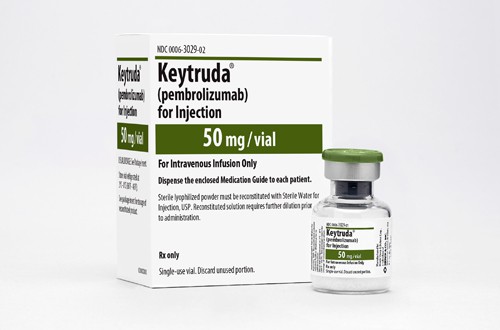
The FDA has approved Merck & Co’s pembrolizumab for the skin cancer advanced melanoma, becoming the first drug in the much-touted PD-1 inhibitor class to be registered in the US.
The US regulator gave the nod for pembrolizumab – which will be sold as Keytruda – as a treatment for melanoma patients whose disease has progressed despite earlier treatment with Bristol-Myers Squibb’s Yervoy (ipilimumab). The approval comes several weeks earlier than expected.
Keytruda has beaten BMS’ nivolumab, Roche ‘s MPDL-3280A and several other candidates – including drugs from AstraZeneca, Novartis and Merck Serono – to secure approval for a drug in the PD-1/PD-L1 inhibitor class, which is predicted to be a major new force in cancer with sales of tens of billions of dollars a year.
BMS won the race to market in Japan, but Merck also appears to be in pole position in Europe after the EMA accepted its marketing application for pembrolizumab in July.
Drugs in this class are designed to expose tumours to attack by blocking a pathway that restricts the body’s immune system from attacking cancer cells.
Pembrolizumab’s approval is based on the results of the KEYNOTE-001 study, which found that 69% of patients treated with the drug were still alive after one year, with an overall survival rate of 74% if they had been previously treated with Yervoy. Around a third of patients also experienced tumour shrinkage of 30% or more.
The FDA has cleared the drug on the basis of this preliminary evidence, on the understanding that Merck carries out additional studies to prove that it is effective in melanoma.
The company has trials ongoing in melanoma and a host of other potential cancer indications, including a phase III programme in non-small cell lung cancer (NSCLC), and has also signed deals with several other companies – including Pfizer , Incyte and Amgen – to test the drug in combination regimens.
The FDA approval also indicates that for melanoma patients whose tumours express the genetic mutation BRAF V600, Keytruda should be used after treatment with ipilimumab as well as a BRAF inhibitor, a class which includes Roche’s Zelboraf (vemurafenib) and GlaxoSmithKline’s Tafinlar (dabrafenib).
A report in the Wall Street Journal indicates that Merck will be charging a premium price for the product at around $12,500 a month or $150,000 a year, with analysts at Leerink Swann predicting peak sales for pembrolizumab of around $6bn across several cancer indications.
The approval marks the sixth new drug to be approved for melanoma by the FDA since 2011, which is helping to transform the prospects for patients with this serious form of skin cancer.




